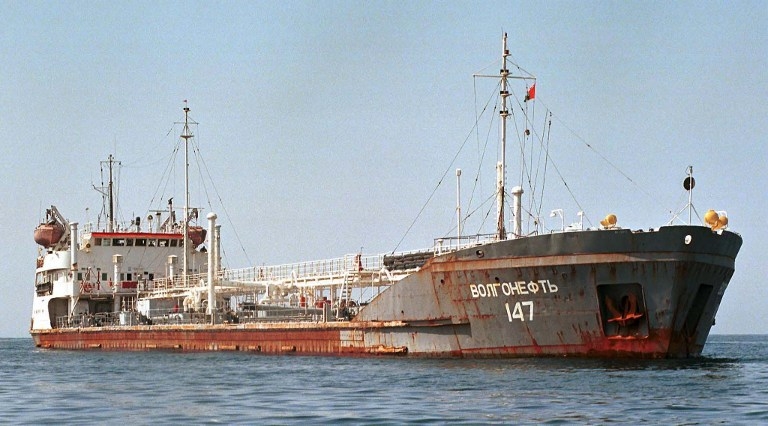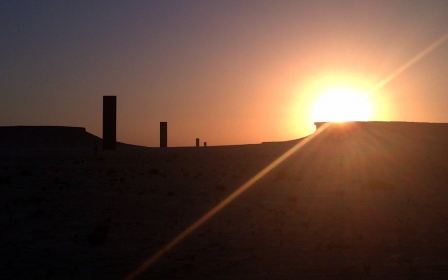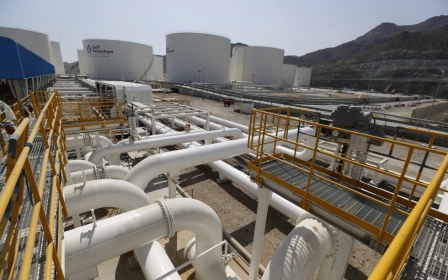Qatar waits in wings as EU considers Russian LNG

By Daniel Wagner, Giorgio Cafiero, and Sufyan bin Uzayr
WASHINGTON - Throughout the Ukraine crisis, European Union (EU) leaders have become more vocal about their interest in reducing Europe’s consumption of Russian natural gas. As a result, Qatar — the world’s number-one provider of liquefied natural gas (LNG) — is well positioned to play a more influential role in Europe’s energy landscape.
Although unlikely to replace Russia as Europe’s top natural gas provider, Qatar could assist in significantly decreasing the EU’s reliance on Russian energy resources while at the same time obtaining greater diplomatic leverage over European governments.
Doha may once again remind Russia that Qatar’s tiny size cannot stop it from undermining Russia’s strategic interests.
Ukraine’s impact on EU-Russia energy trade
New MEE newsletter: Jerusalem Dispatch
Sign up to get the latest insights and analysis on Israel-Palestine, alongside Turkey Unpacked and other MEE newsletters
Fortunately for the EU, Ukraine’s crisis did not erupt several years earlier. In 2006, 80 percent of Russia’s natural gas sales to the EU transited Ukraine. This was reduced to 50 percent by 2013 (two years after the Nord Stream pipeline came on line — connecting Vyborg, Russia to Sassnitz, Germany via the Baltic Sea).
In 2013, the EU and Russia began construction on the South Steam project, a planned gas pipeline connecting Russia to Bulgaria via the Black Sea, which would increase EU-Russia energy trade while bypassing Ukraine.
However, the chilling of EU-Russia relations may jeopardise the South Stream project’s future. European firms involved in the project have reacted differently. While the CEO of Italy’s ENI called the project’s future “gloomy,” some Bulgarian and German firms have remained optimistic, as have their Russian partners.
Naturally, each EU member faces unique geopolitical challenges and varying degrees of geographic proximity to alternative natural gas providers and corridors. National interest will therefore dictate how each participating European nation reacts to the project in the future.
Qatar’s most promising near-term opportunities in the EU exist in Central/Eastern Europe, where dependency on Russian gas is comparatively high and anti-Kremlin sentiment is widespread.
Although Poland relies on Russia for 60 percent of its natural gas imports, Warsaw has pursued bold measures to purchase gas from other providers (including Qatar) since the Russia-Ukraine price war of 2009, which highlighted the geopolitical risks of maintaining a reliance on Russian gas.
Poland’s LNG terminal in Świnoujście is expected to begin importing Qatari gas in 2015. As Eastern European countries, including Estonia and Lithuania, also invest heavily in LNG infrastructure, Qatar will likely gain new opportunities given Doha’s ownership of Qatargas, the world’s largest LNG shipping company.
Can Qatar make a difference?
Although Qatar is only a fraction of one percent the size of Russia, the Gulf emirate’s reserves amount to over half of Russia’s, making Qatar the world’s number-two gas exporter behind Russia itself.
However, Qatar understands that it cannot overtake Russia as Europe’s top gas seller, nor is it clear that Doha has any interest in pursuing such an ambition.
Due to Russia’s enormous market share in Europe, it can sell natural gas to the Europeans at a price 40-50 percent below what the Qataris offer. Nearly 70 percent of Qatar’s exports reach China, India, Japan, Singapore, and South Korea, making Qatar’s economy far less dependent on EU-bound exports.
Therefore, Russia will likely sign gas deals with Europe at rates below any level that the Qataris would find agreeable given their opportunities in Asian markets. While Polish officials are willing to pay a steep price to wean their country off Russian gas, other European governments will not have the ability or incentive to do so.
Russia’s preeminent role in the EU gas market cannot be threatened in the near-term. Even Poland — the EU member arguably most determined to reduce its reliance on Russian gas — still has a contract with Gazprom booked until 2022.
Alternatively, the possibility of Germany re-starting its nuclear power plants, advances in green technology, and increased consumption of coal could decrease the EU’s consumption of natural gas altogether.
Furthermore, the costly investments in LNG infrastructure that cash-strapped European governments would have to make in order to secure higher LNG imports from Qatar will limit Doha’s capacity to wedge itself between the EU and Russia.
Europe’s evolving energy landscape
If Qatar were to gradually wean the EU away from Russian natural gas, Russia’s economy could suffer. However, President Vladimir Putin seems unperturbed by such maneuverings, telling a reporter on Apr. 17, 2014 that it would be “impossible” for the EU to stop purchasing Russian gas.
When Putin visits Beijing in May 2014 the issue of energy trade will most likely be high on his agenda as China appears the only country that could offer Moscow an alternative destination for Russian gas exports significant enough to replace any decrease in EU consumption of Russian energy resources.
In the longer term, if Qatar can enable the EU to gradually diversify its sources of natural gas, the Kremlin would lose a degree of leverage over Brussels at the negotiating table. In turn, Doha may once again remind Russia that Qatar’s tiny size cannot stop it from undermining Russia’s strategic interests.
By hosting the United States Central Command and sponsoring rebellions against pro-Moscow regimes in Libya and Syria, Qatar has indeed demonstrated its capacity to check Russia’s agenda in the Arab world.
The question ultimately boils down to whether Europe will choose Qatari natural gas over other alternatives to Russian gas, and whether Doha will invest in a stronger energy partnership with the EU.
Given the different incentives that Russia and Qatar have with respect to selling their natural gas to Europe and the difference in terms of energy infrastructure linking the two countries to the EU, Qatar is unlikely to make a major dent in the EU’s reliance on Russia’s gas in the near-term.
Yet, the chill in Russia’s relations with the West may offer Qatar a strategic opportunity to gain influence in Europe in the years to come.
Daniel Wagner is CEO of Country Risk Solutions and Senior Advisor with Gnarus Advisors. Giorgio Cafiero is co-founder of Gulf State Analytics (GSA). Sufyan bin Uzayr is an analyst with GSA.
Middle East Eye delivers independent and unrivalled coverage and analysis of the Middle East, North Africa and beyond. To learn more about republishing this content and the associated fees, please fill out this form. More about MEE can be found here.



